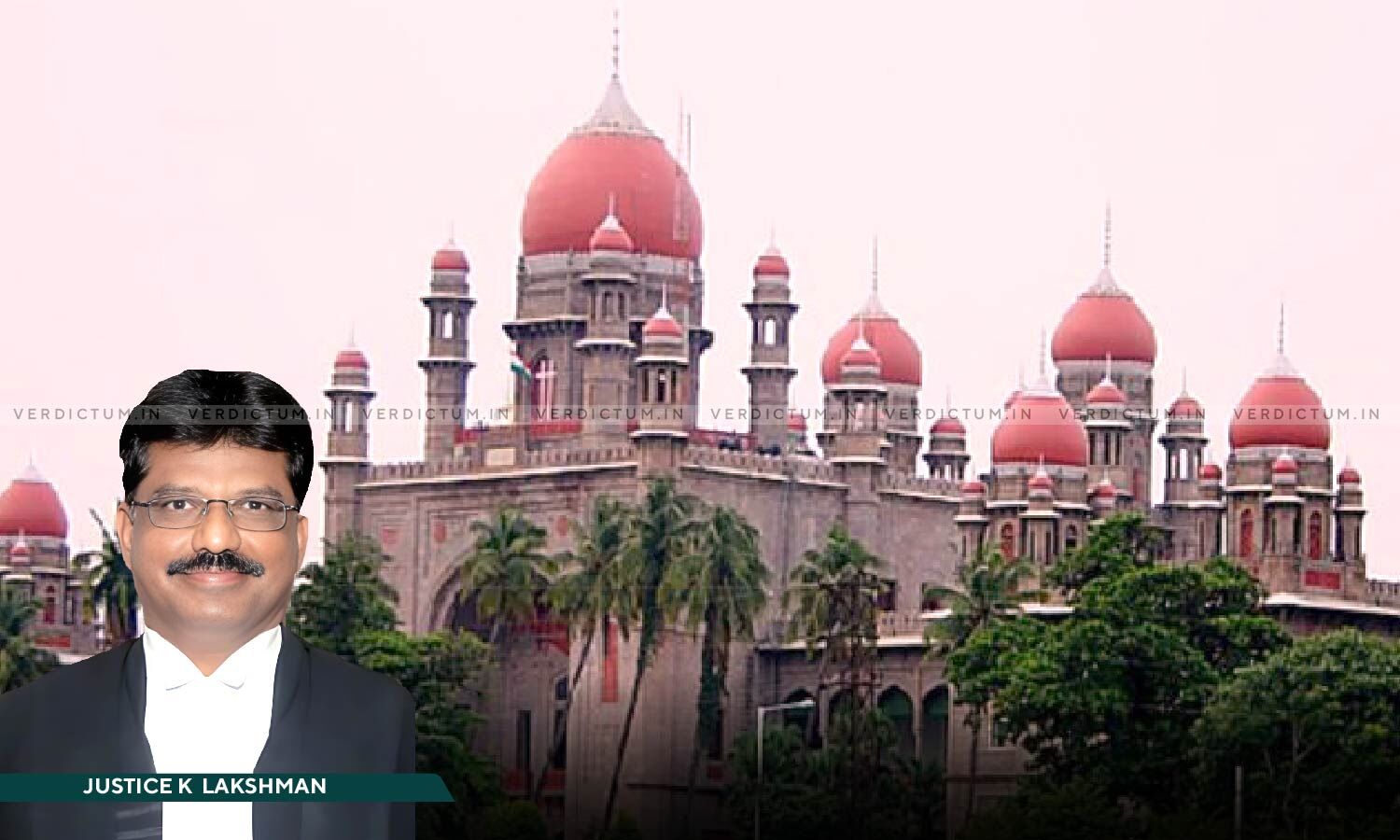Telangana High Court Upholds Kothagudem MLA’s Election

The Telangana High Court has upheld the election of an MLA (Member of Legislative Assembly) from Kothagudem Assembly Constituency, Telangana State.
An Election Petition was filed before the Court under Section 81 read with 100, 101 and 125A of the Representation of Peoples Act, 1951 (RP Act) and Rule – 3 of the Rules to Regulate the trial of Election Petitions under the Representation of Peoples Act, 1951.
A Single Bench of Justice K. Lakshman held, “Mr. G. Vidya Sagar, learned Senior Counsel, would contend that there is modification to the affidavit in Form 26 pursuant to the judgments of the Apex Court. As per the modified form, the candidate has to fill all the blanks and there is no need of mentioning his spouse name and dependants’ name. Thus, respondent No.1 has filled all the columns and mentioned all the details, like PAN, income tax returns, assets and liabilities, antecedents and educational qualifications of the candidate and his spouse. According to respondent No.1, he has no dependants and, therefore, he has not mentioned. The election petitioner is also not disputing that respondent No.1 has dependants. His two children are not dependants on respondent No.1.”
The Bench said that the Election Petitioner cannot contend that the nomination filed by Respondent is not valid and that the Returning Officer accepted the said invalid nomination.
Advocate Ramesh Kuthumbaka represented the Election Petitioner while Senior Advocate G. Vidya Sagar, Advocates Prasen Gundavaram, K. Durga Prasad, Ramesh Katikineni, and Ravi Chandra Sekhar represented the Respondents.
Facts of the Case
The Election Petitioner contended that he was the resident of Kothagudem Town which comes under 117-Kothagudem Assembly Constituency. Vide memo and Gazette Notification issued by the Election Commission of India (ECI), a schedule of elections was declared to elect the Members to the Telangana State Legislative Assembly-2023 for total 119 Assembly Constituencies in Single Phase including 117-Kothagudem Assembly Constituency. The Respondent contested in the said election as a candidate set up by the Communist Party of India (CPI) while another Respondent contested as a candidate set up by the All India Forward Bloc Party. Apart from them, 28 other candidates also contested in the said election for the post of MLA. The Petitioner casted his vote in the said election and results were declared.
The Respondent was declared as ‘Returned Candidate’ for the subject constituency and a Gazette Notification was also issued to that effect. The Respondent stood in the first place while the other stood in the second place among others. As per Rule – 4A of the Conduct of Election Rules, 1961, contesting candidate must file Form-26 in the form of an affidavit along with nomination papers before the Returning Officer. It was further contended that the Affidavit of the Respondent does not amount to be a sworn affidavit and thereby he has not complied with Rule 4A of the 1961 Rules to contest the election. It was also contended that the Respondent intentionally suppressed by not disclosing the name of his wife in the said affidavit which not only amounts to an offence punishable under Section – 125A of the RP Act but also amounts to non-compliance of Rule 4-A.
Reasoning
The High Court after hearing the arguments from both sides, noted, “… any elector can file election petition. In the present case, the election petitioner is the voter of the subject constituency and in proof of the same, he has filed voter I.D. Card – Ex.P11. Respondent No.1 failed to disprove the same during cross-examination of PW.1, or by producing any evidence. Therefore, the contention of respondent No.1 that the election petitioner is not the voter of the subject constituency and that the present election petition filed by him is not maintainable is unsustainable.”
The Court added that the Election Petitioner filed the Election Petition within limitation in terms of Section 81 of the RP Act.
“… respondent No.1 cannot contend that there is no cause of action in the election petition and, therefore, the said contention is unsustainable. … in view of the findings of this Court on issue Nos.4 and 6, the election of respondent No.1 cannot be set aside by declaring it as null and void. Hence, this issue is decided accordingly”, it further observed.
The Court said that there is no material suppression of fact by the Respondent – returned candidate and as non-mentioning of his wife’s name in affidavit is not material suppression, it is not substantial in character; and therefore, on the said ground, election of the Respondent – returned candidate cannot be set aside by declaring it as void.
“The fact that an election petition calling into question his election is pending may, in a given case, act as a psychological fetter and may not permit him to act with full freedom. Even if he is made of stern metal, the constraint introduced by the pendency of an election petition may have some impact on his sub conscious mind without his ever being or becoming aware of it. Under the circumstances, there is greater reason why in a democratic set-up, in regard to a matter pertaining to an elected representative of the people which is likely to inhibit him in the discharge of his duties towards the Nation, the controversy is set at rest at the earliest, if the facts of the case and the law so warrant”, it also remarked.
The Court, therefore, concluded that the Election Petitioner failed to make out any ground to set aside the election of Respondent-returned candidate.
Accordingly, the High Court dismissed the Election Petition and upheld the Respondent’s election.
Cause Title- Nandu Lal Agarwal v. Kunamneni Sambasiva Rao & Ors. (Case Number: ELECTION PETITION No.3 OF 2024)





